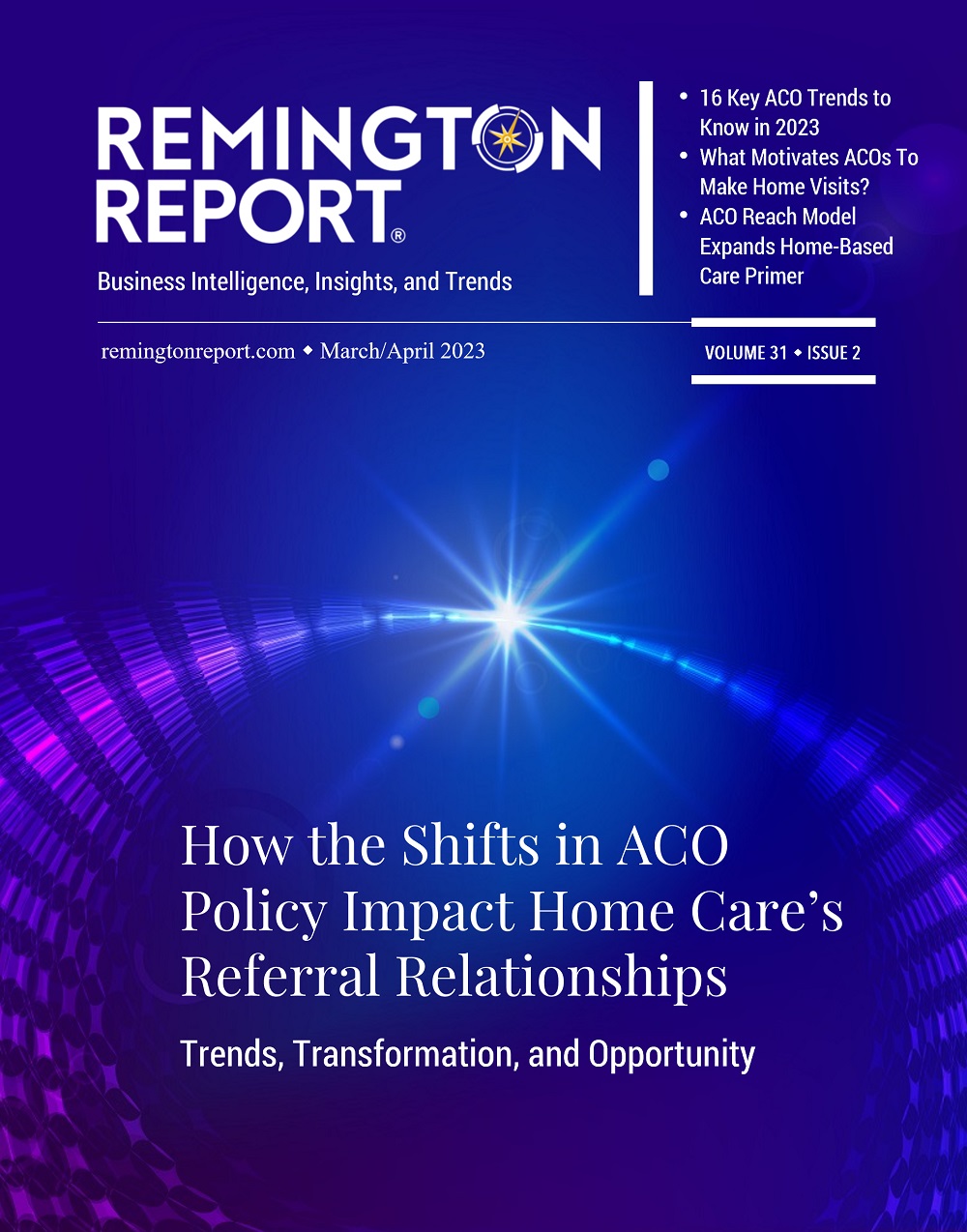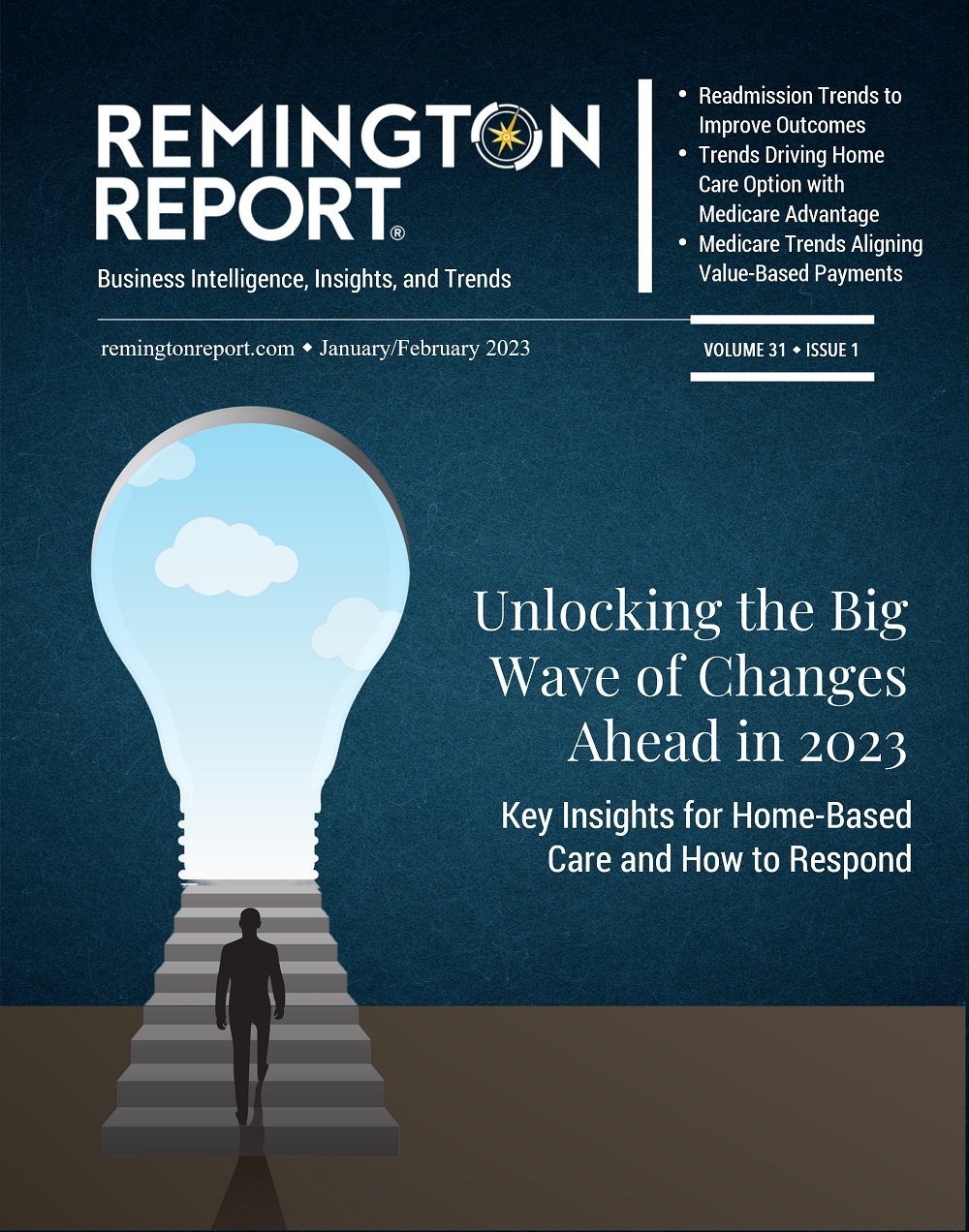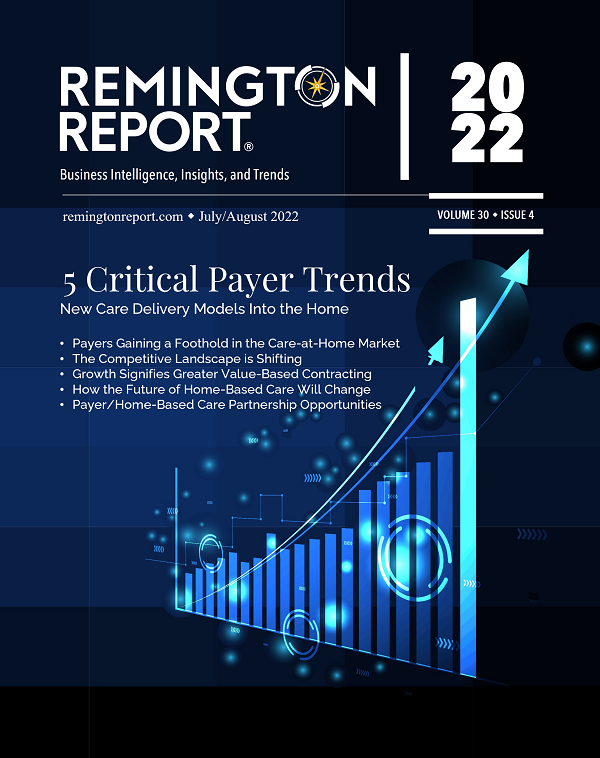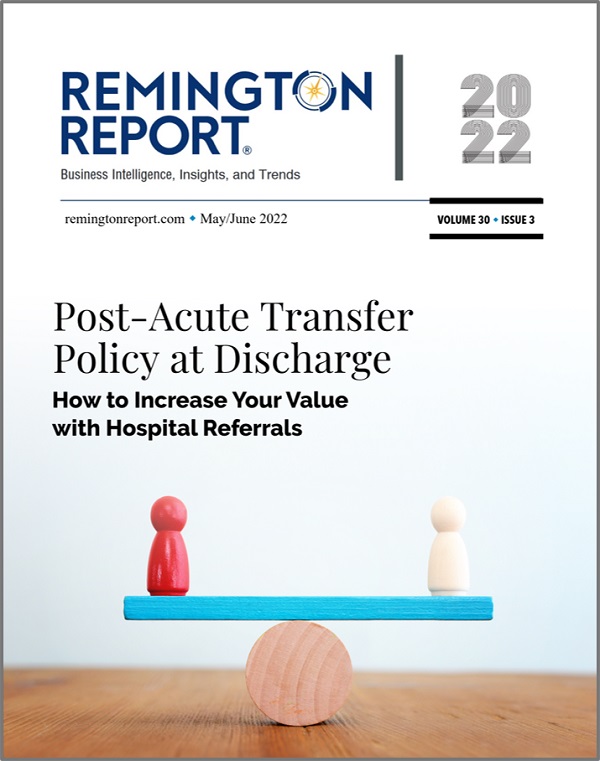For providers to be liable under the federal False Claims Act, enforcers must prove that providers knowingly submitted false claims. Now the U.S. Supreme Court has issued an opinion in United States ex rel. Schutte v. SuperValu, Inc. [No. 21-1326 (U.S. June 2023)] that defines what “knowingly” means. The Court ruled that providers act knowingly depending on their “culpable state of mind” when they submitted alleged false claims; not what providers may have thought after submitting them. The requirement to prove knowledge or “scienter,” said the Court, refers to providers’ knowledge and subjective beliefs; not to what objectively reasonable persons may have known or believed.
ABOUT THE REMINGTON THINK TANK STRATEGY INSTITUTE
We want you to think boldly about your future! Unlocking growth and business development opportunities for your organization requires a deep understanding of industry trends, evaluating different growth drivers based on healthcare and home care market transformations, comprehending the strategic direction of your referral sources, and uncovering your direct path to growth.
With three decades of unwavering commitment, we take pride in our proven track record as vital educators and growth strategists within the home care industry and its ecosystem partnerships. Our comprehensive suite of education and consulting services drives innovation for navigating ongoing disruptions, capitalizing on emerging growth opportunities, and creating a bold new future.
Send Us a Note
We’re Only a Mouse Click Away
Just complete and submit the form, and a member of our team will be in touch shortly.
Let's Discuss Strategy
Let’s Get Started
Just complete and submit the form, and a member of our team will be in touch shortly.
Let's Discuss Peer-to-Peer Advisory Boards
Let’s Get Started
Just complete and submit the form, and a member of our team will be in touch shortly to discuss membership fees and additional details.
Let's Discuss Strategic Partnership Growth Collaboratives
Let’s Get Started
Just complete and submit the form, and a member of our team will be in touch shortly to discuss membership fees and additional details.
Let's Discuss Strategic Initiatives
Let’s Get Started
Just complete and submit the form, and a member of our team will be in touch shortly to discuss our various strategic initiatives.
Subscribe to Our E-Newsletters
What can we help you find?
Subscribe to Our Newsletters
30262 Crown Valley Parkway
Suite B 407
Laguna Niguel, CA 92677
remington@remingtonreport.com
Magazine
THINK TANK
Search By Topic
For Subscribers
Copyright © 2012 – | The Remington Report | All Rights Reserved | Privacy Policy | Terms & Conditions | Powered by LeadWorks
March/April 2023 Issue

Click on any title to read the article.
- Message From Lisa Remington
- 16 Key ACO Trends to Know in 2023
- What Motivates ACOs to Make Home Visits?
- Preferred-Provider Arrangements Between Home Health, Hospice and Private Duty Agencies, and Assisted Living Facilities and Retirement Communities
- ACO Reach Model Expands Home-Based Care Primer
- Senior Care Profiles
- Why Collaboration Across the Care Continuum Improves ACO Patient Experience
- HIPAA Violations to Avoid
January/February 2023 Issue

Click on any title to read the article.
- Message From Lisa Remington
- 30-Day Readmission Trends to Improve Outcomes
- 5 Changes to Social Determinants of Health Quality Measures Across the Continuum 2023
- Trends Driving Home-Based Care’s Contracting Options with Medicare Advantage Plans
- 2023 CMS Adding Physician Relationships to Home Care Providers on Medicare’s Care Compare Website
- 5 Ways Health Equity is Advancing in Medicare Models
- Home Care and Hospice Payment Recommendations for 2024
- Electronic Visit Verification Systems Required January 1, 2023
- 9 Key Trends: How CMS is Aligning Value-Based Arrangements Across Traditional Medicare Programs
November/December 2022 Issue

Click on any title to read the article.
- Message From Lisa Remington
- 5 Ways High-Functioning Team-Based Care Reduces Clinician Burnout
- How Proactive Team-Based Care Engagement Improves Care Transitions
- Which Types of ACOs Use Home Visits the Most and Why?
- Care Transitions Intervention Model to Manage Social Determinants of Health
- 36 Ways Your Investment in Technology Can Produce a Positive ROI Across Your Organization
- Pre-Hospice Home-Based Transition Program
- Improving Real-Time Communications with Care Teams and Patients
- 7 Things Changing in Healthcare 2023 You Should Know About
September/October 2022 Issue

Click on any title to read the article.
- To the Point (Publisher’s Message)
- Workforce Analysis: What are the Key Factors That Would Motivate Nurses to Stay in the Profession?
- Workforce: How Will Medicare Fee-For-Service Trends Change the Way You Think About Future Staffing Needs?
- 11 Strategic Actions to Improve Care Team Productivity
- Workforce: How is the Role of Nurse Practitioners Changing?
- 4 Care Transition Challenges and How to Solve Them
- Workforce Analysis: What are the Best States for Nurses to Work In? The Worst States?
- Analysis: Seniors Usage of Technology and Telehealth Growing
- Workforce: Rural Communities Get Investment to Improve Health Care Workforce and Access
- Staffing Strategies: Efficient Ways to Leverage Scheduling for Improved Staffing Utilization and Increased Continuity of Care
- Workforce: Job Outlook for Home Health and Personal Care Aides
July/August 2022 Issue

Click on any title to read the article.
- To The Point (Publisher’s Message)
- Trend #1: Payers Are Accelerating Into the Home-Based Care Market
- Trend #2: Payers Expanding Home-Based Care Models Nationally
- Trend #3: Highest Chronic Care Conditions in Medicare, Medicare Advantage Plans, And Special Needs Plans
- Trend #4: Growth in Medicare Advantage Plans 2022 Signals Future in Managed Care Contracting
- Trend #5: Payer and Home-Based Provider Partnering to Reduce the Cost of Care
- Strategic Priority: Facts Driving Why Family Caregivers Choose One Care-at-Home Organization Over the Other
- CEO Perspective: How Shifts in Culture and Leadership are Achieving Better Clinician Work-Life Balance
May/June 2022 Issue

Click on any title to read the article.
- To the Point
- Discharge Planning: How is a Post-Acute Transfer Defined?
- Data Point: Discharge Planning Codes Identify Where the Patient is Being Referred
- Post-Acute Care Transfer to Home Health Reduced Readmissions
- Post-Acute Transfer to a Home with Home Health Services
- OIG Report: Medicare to Overpay More Than $267 Million
- Fast Facts About the Post-Acute Transfer Policy
- Post-Acute Care Transfer Policy: The Overpayment for Discharges
- Empowering Your Clinical Team to Increase Patient and Family Engagement
September/October 2020 Issue

- To The Point (Publisher’s Message)
- COVER STORY: Home-Based Primary Care: It’s Time to Think Beyond the Clinic Walls
- DataPoint: 40% of Americans Delay Care
- Telehealth: 2021 New Billing Codes for Physician Home Visits and Care Planning
- Home-Based Primary Care Models are Disrupting the Traditional Primary Care Market
- The Vulnerabilities of COVID-19 Expand Insurers Capabilities In the Home
- Stronger Strategic Partnerships: Data Exchange is a Driving Factor
- Marketing Hospice Service to ALF: Preferred-Provider Agreements
Not Receiving Our Newsletters?
If you are not receiving our newsletters, then the first thing to do is to check your spam folder. If you can see our newsletters there, then you should whitelist them/report them as not spam. The process for doing so is typically documented by your email product. You can also add us to your contact list (remington@remingtonreport.com).
If you can’t see our newsletters anywhere in your spam folder, then most likely they were filtered out by your organization’s firewall. In this case, you should ask the security team of your IT department to whitelist incoming mail originating from the following IPs:
| CIDR | Start of Range | End of Range |
|---|---|---|
| 173.236.20.0/24 | 173.236.20.2 | 173.236.20.254 |
| 192.92.97.0/24 | 192.92.97.2 | 192.92.97.254 |
| 52.128.40.0/21 | 52.128.40.0 | 52.128.47.255 |
You should also ask them to whitelist the domain: remingtonreport.com

